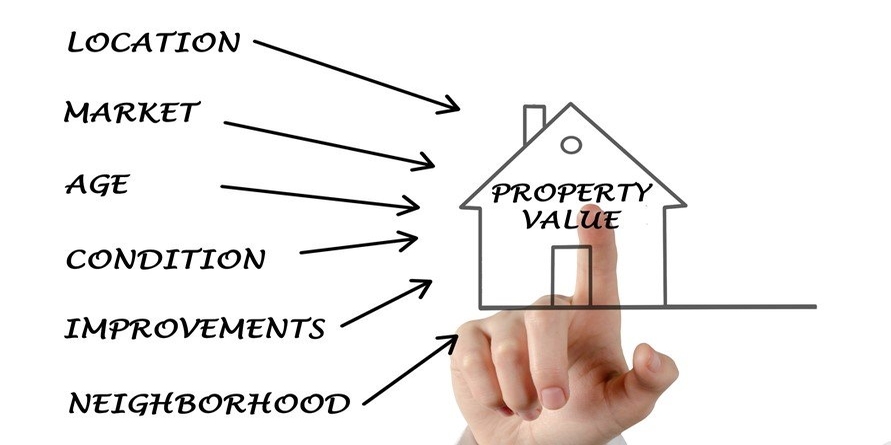Thinking what will happen if the appraised value comes to less than the offered price? A low appraisal does not always result in deal cancellation! Our guide on what happens if the appraisal is lower than the offer? is going to take you through the alternatives.
So, keep reading the article and learn all the information about an appraisal!
An Overview Of Appraisal

An appraisal is a professional property assessment that helps evaluate the worth of a home. A licensed appraiser will evaluate a property based on several factors. In real estate deals, appraisals are essential because they impact the final sale price and guarantee that both parties receive a fair deal.
Appraisal Gap
The appraisal gap is the difference between the price you agreed to pay for the property and the appraiser's assessed amount of the property’s fair market value. It is considered to be the appraisal gap even if the appraisal is 50k lower than offer.
What Happens If The Appraisal Is Lower Than The Offer

Both buyers and sellers may face challenges in this scenario, which may force them to make choices that could affect how the deal turns out.
Low Appraisal: Options For The Buyer
If the appraisal comes less than what you anticipated, you have the following options to proceed with as a buyer:
Renegotiate The Offer Price
Going back to the seller and negotiating an offer that is at a lower price based on the appraised value is one of the first options to opt for if the appraisal comes in low. You might think that do sellers usually lower price after appraisal. Well, if the seller is keen to sell and does not want their house transaction to be entirely derailed and to start over, they might be open to reducing the price they are offering, but this is not guaranteed.
Increase the DownPayment
Increasing your down payment can occasionally spare you from incurring private mortgage insurance (PMI), which will ideally cover the difference between the sale price and the appraised value if the seller is unable to budge on their asking price.
Low Appraisal: Options For The Seller

If the appraisal comes less than what the asking price, you have the following options to proceed with as a seller:
Renegotiate With The Buyer
If the seller wants the deal to proceed, he can think of the option to work out a deal that is beneficial for both parties if he decides against lowering the asking price of your house. For instance, you can offer to pay a portion of their closing fees, include certain pieces of furniture in the sales deal, or cover the cost of some required repairs.
Challenge The Appraisal
In the event of a possible inaccuracy in the appraisal, sellers, as well as buyers, can dispute it. You can ask for a copy of the evaluation, check it for mistakes, and review the comparisons.
Opt For A Reappraisal
You can seek a second opinion in addition to disputing appraisal. A second appraisal is probably going to cost you money, but if the results are higher, you can present them to the buyer and their lender. But remember that does not imply that they will accept it after the initial evaluation.
Why Do Low Appraisals Happen?
Following are some of the reasons why low appraisal happens:
- Declining market value
- Rising market value
- Incorrect evaluation by the underwriter
- Overpricing by the seller
- Appraiser overlooked pending sale data
- Inexperienced appraiser who does not understand local influence on value
- Artificially inflated prices
- A large number of foreclosures or short sales in the neighborhood
- Buyer receives cash back from seller
How To Avoid Receiving A Low Appraisal
Clean The House
Although a home's cleanliness has no bearing on its evaluation, a clean house makes it simpler for the appraiser to find and concentrate on the features that add value to the property.
Create A Favorable Impression
Retouch the walls, apply a new layer of paint, and make the house appear as brand-new as possible. The value of a home can be increased with these simple improvements.
Make Any Necessary Repairs
The property owner will have a better chance of receiving a higher appraisal valuation if they are aware of any shortcomings and have time to address them before the assessment.
Organize Your Home
In the event that the homeowner has made any changes or renovations, they ought to arrange their receipts and take pictures of the work. In this manner, they can provide the assessor with concrete proof of their actions to raise the house's value.
When Is It Appropriate To Pay More Than The Appraised Value?
These days, the persistently low levels of housing availability mean that most purchasers have few options when searching for a property. Offer prices have been boosted even further in reaction to the expensive listing charges.
In some cases, spending more than the appraised worth to obtain your ideal property is appropriate, for instance, if you can make the payments every month or if you want to remain in the house for a long term, giving you plenty of opportunity to create equity.
What Happens If The Appraisal Is Higher Than The Offer?
For several reasons, an appraisal that is greater than the purchase price may occur. Once a house is listed, its value may increase, or owners may choose to price their property below market to attract buyers in a buyer's market.
The buyer has basically agreed to pay the seller less than the home's current market worth if the appraised price of the property exceeds the offer price. The seller, not the buyer, should be concerned about this. If you're purchasing a property, a high appraisal won't affect your financing; in fact, you might even see it favorably because it will mean you'll have some extra equity in the house right away because it's worth more than the amount of your loan.
Conclusion
Both buyers and sellers may find it difficult and emotionally derailing to deal with a low appraisal. To successfully navigate this circumstance, you will learn different useful things from our guide to “What happens if the appraisal is lower than the offer?”
Overall, a low appraisal can be problematic, but it can also provide both sides a chance to reevaluate their goals, engage in sincere negotiations, and, in the end, reach a just and equitable agreement.




